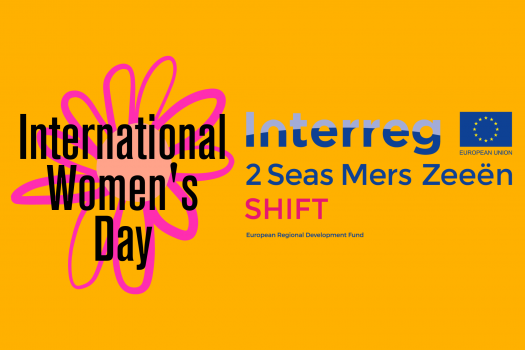International Women's Day 2023

"On this International Women’s Day (8 March 2023), METRO Charity want to mark the importance of understanding and discussing perimenopause and the menopause.
"Half of the global population is born with female reproductive systems, and almost all of them will go through menopause in some way.
"For many cisgendered women, the menopause will happen naturally with age. Others will be forced into early menopause as part of cancer treatment, for example, or as the result of a hysterectomy. Some transgender men and non-binary people will take hormones which cause menopausal symptoms as part of their gender identity journey; alternatively, they might choose not to take hormones, and will reach menopause in the same way as cisgendered women.
"Yet even though literally billions of individuals experience some form of menopause at some point in their lives, the impact of menopause is often dismissed, glossed over, underplayed, or ignored completely. It is not discussed within families, workplaces, many healthcare settings, or even in interpersonal relationships. It remains highly stigmatised and viewed as a taboo topic by many - but why? And how can we start to address the impact of menopause if we don’t start talking about what it is, and how it manifests?
"As part of the UK-European SHIFT research project 2019-2023, METRO and partners explored the sexual health needs and experiences of people aged 45+ across the 2Seas Area. METRO was specifically interested in individuals more vulnerable to poor sexual health outcomes, including LGBTQ+ people, migrants, sex workers, people who were homeless/poorly housed, and people with mental health or substance misuse issues. As part of this work, we reached over 1,000 people via surveys and small focus groups, and over 300 people via street-based outreach. The menopause repeatedly came up as an issue; in fact, during street-based outreach sessions run by METRO, it was the most significant topic.
"Many concerns were raised, and METRO learned just how far-reaching the impact of menopause was, both for those going through it and for many of their spouses, partners, and family members. Romantic relationships were affected, particularly in relation to sexual satisfaction and libido. Partners felt unwanted and unsatisfied; those experiencing the menopause felt unattractive and changed. Physical symptoms such as vaginal dryness and anorgasmia caused sex and masturbation to become unpleasurable, and even painful, for many. Mood swings, night sweats, and temperature changes impacted sleep, the ability to perform at work, mental health, and family dynamics. GP responses were mediocre and/or non-existent; anxiety and depression were often diagnosed without considering that hormonal fluctuations might have been the underlying cause. These are just a few of the many, many concerning things we heard.
"Reading the above, it would appear that many people, including healthcare professionals, simply do not understand the menopause. Yet, the impact of the menopause is well-documented, and there are countless clinical and non-clinical resources to reduce symptoms, guide treatment, and minimise the impact of the menopause on individuals. In the UK, there are clear clinical guidelines around when and how to test for menopause, as well as recommended treatment options.
"Despite this, many individuals whom we spoke with had bad experiences with their GPs, who seemed to brush off their concerns, fail to order appropriate tests, and refuse to prescribe standard treatment options. When Hormone Replacement Therapy (HRT) was issued, the cost of accessing treatment was prohibitive for many, particularly those on a lower income. Lifestyle changes were rarely discussed, and even simple solutions like adding lubricant to sex and masturbation and/or at-home pelvic-floor strengthening advice were not given. In so many cases, the individuals we spoke to felt like they’d been left to suffer in silence.
"For all these reasons: METRO wants to do three things on this International Women’s Day:
"First, we want to raise awareness of the symptoms of the menopause, which are far-reaching. Please visit the menopause section on the SHIFT website. You will find a comprehensive list of symptoms, helpful videos, and onward referral points.
"Second, we want to ensure that people experiencing the menopause have some useful advice about what can actively be done, including:
- Understanding the NICE Clinical Guidelines on Menopause (these are the clinical guidelines that doctors have to follow!)
- Talking to friends and family to discuss and share experiences, and destigmatise conversations about menopause
- Bringing a list of symptoms and questions with you to a GP appointment, along with an advocate, to ensure people are listened to and treated according to their needs
- Joining an online menopause forum or in-person support group
- Using at-home treatments like lubricant to ease vaginal dryness and pelvic-floor toners to strengthen the pelvic floor
- Asking your GP for a referral to a counsellor or relationships counsellor, if the menopause is affecting your mental health or relationships
- Asking to see your workplace menopause policy - and advocating for the creation of one if it doesn’t already exist (METRO is proud to have a menopause policy in place for staff and volunteers, and for awareness of the needs of our service users)
"Finally, METRO call upon the Government, the NHS, and all workplaces to do more to support people living with, and affected by, the menopause and perimenopause. Please do write to your MP and your local authority to show your support for better recognition of, and support for, people going through the menopause.
"To find out more about the SHIFT Project, including accessing free sexual and reproductive health resources and signposting, visit the SHIFT Project website."
Amanda Dawes, Leading Sexual Health Consultant for METRO Charity, SHIFT Project.